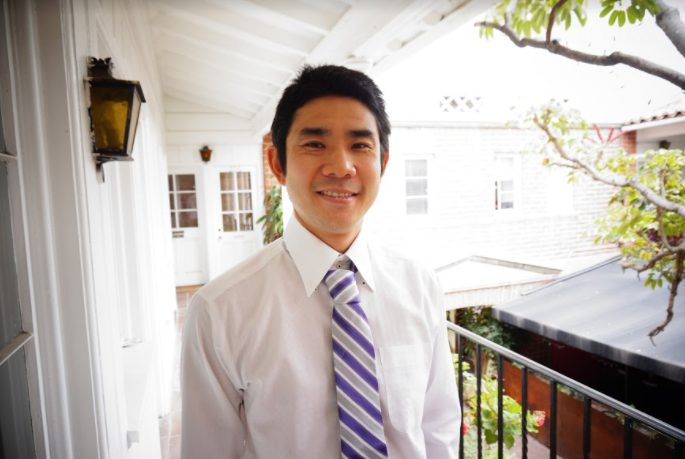
You may have heard some negative feedback about homestay, including that it’s hit or miss. What are some things that people have complained about?
Meals? Communication issues? Safety? Distance to school?
Each person’s experiences and opinions are different, so it is important not to let yourself get too affected by the conflicting opinions of those around you. It’s also important to learn how to effectively handle differing viewpoints.
In most instances, it is the relationship between the host family and the student where the student ends up feeling uncomfortable.
It’s not uncommon to end up thinking to yourself that you don’t like your host parent. Such situations are rare, but may end up happening.
However, nobody wants to be in this type of situation and nobody sets out to be disliked. So what are some ways that you can avoid ending up in a bad situation?
Here are some tips on how to enjoy your homestay and avoid having a bad experience.
If you are thinking about doing a homestay, please take a look at this!
Things you should never do

Here are three universal rules you can follow. These are things that apply not only to homestays, but everywhere in America.
① Pretending to understand
Some students end up pretending to understand what their host says, because they feel too embarrassed to ask for clarification or for their host to repeat themselves. This is a BAD IDEA!
Japanese people especially do this often, and end up doing things because they think the host told them something, but in fact told them something completely different. This in turn causes problems for everyone involved.
Do not pretend to understand something you do not know.
If you don’t understand something, just ask the person to repeat what they’re saying. Feel free to ask as many times as you need. If they’re speaking too fast, ask them to please slow down, and if you still can’t understand, ask them to please write it down for you.
② Not saying YES or NO clearly
Japanese people love being indirect, opaque, avoiding conflict and not giving clear answers. Therefore, it’s difficult for them to clearly say yes or no to a given question. While Japan’s culture may be designed around not expressing yourself fully, American culture is the exact opposite of that.
If you speak like a typical Japanese person, going “oh, well, I don’t know. Maybe..” and expecting the other person to read your mind, you’ll just end up annoying the people around you in America. They’ll end up thinking “Why can’t they just tell me yes or no? What’s wrong with them?” and you’ll end up in a lot of difficult situations as a result of improper communication
To avoid these issues, you have to learn to be direct and tell people exactly what it is that you want. Therefore, it’s incredibly crucial to get comfortable with saying yes or no.
③ Your host is not your maid
Some students mistakenly believe that their hosts are their maids.
Doing a homestay is like living as a member of another person’s family. You are expected to do your own dishes, laundry, and to keep your bathroom and bedroom clean.
Don't expect the host to do everything for you. Be considerate.
Things to do to be comfortable and enjoy yourself during your homestay

It is your responsibility to resolve and prevent issues between you and your host. Oftentimes, it may be your own fault that these issues arise in the first place. What’s the main reason for problems starting?
Because the students are not talking with their host.
Even if a host is used to speaking with students who do not speak English well, they are not mind readers. They do not know how you are feeling or what you are thinking unless you communicate with them.
If you can't have communication smoothly with a host, you wouldn't enjoy your homestay.
That is same as the host.
Communication is essential for a good homestay.
So what does that mean? How do you communicate?
The answer is very simple!
Talk as your own self.
If you make an honest, open effort to talk, you’ll be able to communicate with your host effectively.
"What do I do if I make grammatical errors?", "I don't know what to say", "I'm embarrassed about my English and think the host won’t understand me"
Many students hesitate to talk because they feel insecure, thanks to thoughts like these clouding their mind and filling them with doubts.
However, hosts don’t care about grammatical mistakes. They will always understand the gist and will take the utmost effort to attempt to understand you.
"My host isn’t communicative enough for me . I want to move to a different host family”
We are often contacted with these types of complaints but in most cases the situation resolves itself if you talk it over with your host parent.
Solve a problem yourself
America instills its children with the spirit of independence from a young age. Elementary school students stand in front of their peers and express their opinions in class presentations. This results in a society where people are expected to be independent and self-supporting. Thus, if someone doesn’t bring up a problem to another person, it’s assumed that there is no problem.
The main point is that if there is something on your mind, you have to tell your hosts and communicate with them.
If you do not communicate, then your hosts will never understand who you are or what you’re thinking.
It's important to express your opinions
In America, outward expression is taken for granted to such an extent that if you are not outgoing and do not begin communication with other people yourself, then other people will simply ignore you. People will see someone who is quiet and not talking to anybody else and merely assume that you want to be left alone.
In the United States, joining in on conversations via small talk is very common, even among people you do not know. For example, one time I was having a conversation with my homestay’s hosts about Hawaii, and they joined in the conversation and introduced themselves later.
Dinner is the best time to communicate with your hosts. Do not just answer yes or no to every question; instead try to be an assertive communicator.
Phrases that you can use to talk with someone

We explained that it is important to communicate in order to have a successful homestay experience.
So how should you talk to people?
Speaking with other people allows for a wide amount of freedom, but the following are phrases that I often use when talking.
本当になんでもいいと思いますが、以下私がよく使う話しかけるときのフレーズです。
What a nice weather today. We should take an advantage of it. Are you doing something today?
とても良い天気ですね。こんなに天気がいいんだから、何かすべきだよね。今日は何かする予定あるの?
Advantage is a word people often use and sometimes can have a negative connotation when used in certain phrases. For example, the phrase “don't take advantage of me” is one that all Americans are familiar with. However, depending on the context, it can have a completely different meaning!
Such a cute dog! What is (his or her) name?
可愛い犬ですね。名前はなんていうの?
ロサンゼルスでは犬を飼っている人が本当に多いです!ホームステイでも犬を飼っていない家族の方が少ないくらいです。
犬は家族の一員と考える人が多いので、やっぱり家族をほめられると嬉しいものです。
Your baby is so adorable. What is the name?
なんと可愛い赤ちゃん!名前はなんというの?
It is difficult to tell whether a baby is male or female just by looking at one. In this case, you can ask for their name. Talking about someone’s child is a really great way to start an energetic and lively conversation. New parents love talking about their kids!
The word “adorable” is especially useful, since it means “very cute” and can be used for both girls and boys!
I like your shirt. Where did you buy(get) it?
良いシャツだね。どこで買ったの?
You might encounter this type of situation anywhere, even at the supermarket! Shop workers are free to engage in small talk with customers in America.
Let's practice talking with the host!
After praising something about another person, such as their fashion, pet or children, it's a good idea to ask follow-up questions. The other person will enjoy the attention and is sure to explain further.
Example: When you get home and see your host:
I like your XXX. Where did you get it?
XXXとても良いですね、どこで手に入れたの?
It’s a great way to get your host talking with you. The host will be glad that you’re being proactive in your conversations.
If the host's food is delicious, you can say It’s very good! How did you make it?
It is very good! How did you make it?
If the host enjoys cooking, hearing something like that would make them happy.
Feel free to ask us anything!

If something happens to you with the hosts, try to deal with it yourself first. If it is difficult to solve yourself, you should contact us ASAP.
The Los Angeles Study Abroad Information Center also provides homestays. We have an office in Los Angeles, so if you have any problems with your homestay, we can help you with your housing needs
We have a background check for host families.
For other inquiries, please contact us!
If you have any questions, please feel free to ask us!
4/28/21



